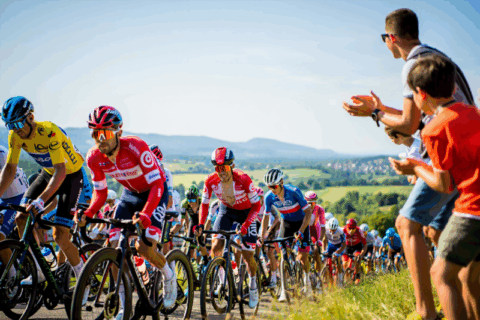
Почему постоянство важнее тренировки для долгосрочного прогресса
In the world of sports and fitness, achieving sustainable progress is often misunderstood. Many enthusiasts assume that pushing their limits during intense, sporadic workouts will yield rapid results. However, the truth is that consistency in training consistently outperforms occasional bursts of effort. On a global sports website that covers news, interviews, analysis, training, nutrition tips, and major competitions, understanding why steadfast effort beats intensity is critical to long-term athletic development.
The Science Behind Consistency vs. Intensity
Why Does Consistency Matter?
Research in sports science and neuromarketing reveals that regular, moderate training stimuli promote:
- Continuous adaptation of muscles and cardiovascular systems
- Improved technique and movement efficiency
- Better recovery and injury prevention
- Sustained motivation and psychological resilience
The Pitfalls of Relying on Intensity Alone
While high-intensity workouts can produce quick gains—such as temporary strength or endurance boosts—they often:
- Increase risk of burnout and injury
- Lead to inconsistent routines due to fatigue
- Diminish long-term adherence due to physical and mental exhaustion
| Aspect | Consistency | Intensity |
| Impact on progress | Steady, sustainable enhancements | Rapid but potentially unstable improvements |
| Risk of injury | Lower | Higher |
| Motivation | Maintained through regular wins | Fluctuates with intense sessions |
| Long-term results | Superior | Limited if not balanced |
How Consistency Builds Long-Term Results
1. Neural Adaptation and Habit Formation
Consistent training ingrains movement patterns, improves neural connections, and makes exercise an integral part of your lifestyle. Over time, this leads to:
- Improved technique
- Greater efficiency
- Natural motivation to train
2. Physiological Adaptation
Gradual, steady effort fosters:
- Muscular hypertrophy
- Cardiorespiratory endurance
- Metabolic improvements
These adaptations take time but are more durable when earned consistently.
3. Psychological Benefits
Maintaining a regular routine reduces mental barriers, enhances discipline, and fosters a growth mindset—critical for reaching elite performance levels.
Practical Strategies to Prioritize Consistency
Set Realistic Goals
- Focus on small, achievable milestones
- Incorporate variety to prevent boredom
- Schedule regular sessions, e.g., 3-4 times per week
Develop a Training Schedule
| Step | Action |
| 1 | Define your target outcomes (strength, endurance, technique) |
| 2 | Allocate specific days and times for training |
| 3 | Track progress and adjust as needed |
Stay Motivated
- Celebrate minor victories
- Find a training partner or community
- Remember your long-term vision
Frequently Asked Questions
Is it better to train daily or every other day?
Consistency is key, so find a frequency that suits your lifestyle and allows adequate recovery. Daily light activity or moderate sessions are often more sustainable than infrequent, exhaustive workouts.
Can I see results with low-intensity training?
Absolutely. Regular, moderate efforts can lead to significant improvements over time. High-intensity sessions are beneficial but should complement consistent routines rather than replace them.
How do I stay consistent when motivation drops?
Focus on habit-building, track your progress, and remind yourself of your why. Remember, slow and steady wins the race—especially in sports and fitness.
Final Thoughts: Embrace the Power of Consistency for Future Success
Whether you’re an aspiring athlete aiming for a major competition or a fitness enthusiast chasing personal health goals, prioritizing consistency over intensity lays a solid foundation for genuine, lasting progress. Building discipline, creating sustainable routines, and trusting the process will ultimately lead to superior results—far beyond what sporadic, intense workouts can achieve.
Take Action Today: Review your current training routine. Are you focusing on regular effort or just intense sessions? Adjust your approach, commit to consistent effort, and watch your progress unfold over time.
Remember: Great achievements are born from perseverance—not just moments of brilliance. Commit to consistency now for a healthier, stronger, and more resilient future.
*For expert tips, inspiring athlete stories, and the latest in training science, stay tuned to our global sports website—your ultimate resource for long-term success in sports and fitness.*


